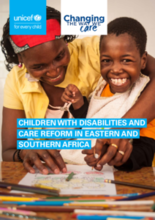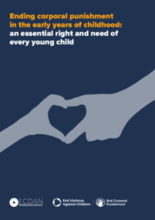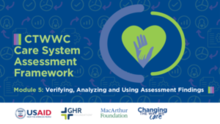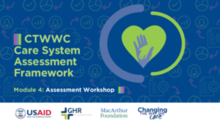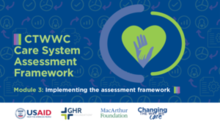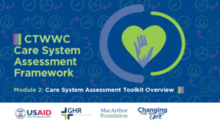Demographic Data
|
Sources: World Bank, UNDP, UNAIDS, DHS 2013 |
Displaying 2211 - 2220 of 14391
This 2-day summit will engage policy makers, researchers, academia and practitioners to identify evidence based solutions to effectively address the child protection challenges in the post COVID-19 era.
Cambodian Minister of Social Affairs Vong Sauth has called on all relevant authorities to resolve children’s protection issues and implement the National Strategy following the launch of the National Policy on Child Protection System 2019-2029 in September.
This paper highlights the importance of placing support for children with disabilities and their families at the centre of care reform efforts, and provides examples from across the region of how this can be done.
This resource aims to improve the quality of care for children of female sex workers (CFSWs). It is a training guide that aims to strengthen the capacity of community workers and volunteers to provide services that meet the special needs of CFSWs and ensure these services are key population-competent, child-friendly and stigma-free.
This briefing, authored by Jorge Cuartas with End Violence and the Early Childhood Development Action Network examines evidence from research on the impacts of violent punishment on young children, global prevalence and progress towards universal prohibition, and strategies to end corporal punishment. It adds yet more weight to the call that all countries must take steps to prohibit and eliminate violent punishment of all children without delay.
This Toolkit for Disability Inclusion in Care Reform represents a collection of work developed from the experience of many practitioners and organizations. The aim of this toolkit is to increase the capacity and confidence of those working in children’s care, child protection and family strengthening to mainstream disability through every step, utilizing improvements to systems, practices, skills and attitudes. We envision family care for all children and the use of residential care only as a last resort when absolutely necessary and appropriate. The toolkit reinforces the importance of placing family care for children with disabilities at the top of any care reform agenda.
Describes multiple points for verification of results, key considerations for qualitative analysis and considerations to define audiences for using results.
Considerations for facilitating the assessment workshop, group selection, building consensus and drafting priority recommendations during the workshop.
Key principles, considerations and recommendations in applying the assessment and method details.
Brief introduction to the assessment framework, guidance document, training modules, background, and method.

